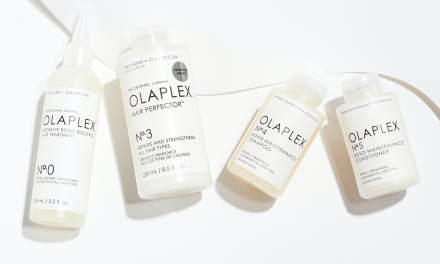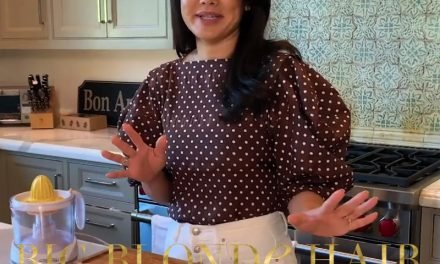
I am sure you have heard someone comment: “Let her be, at her age she can do whatever she wants!” We usually hear these comments when we spend more time watching television than exercising, or indulge in lifestyle choices that may not necessarily support our health.
The rationale behind these comments is that after 60 and more years of life, it may be too late to develop new healthy habits. Moreover, if we have been taking care of ourselves all along, then at this point being “bad” really won’t make a difference. And truth be told, people use this as an excuse to justify their own unhealthy behaviors. Perhaps you have as well?
Never Too Late to Develop Healthier Habits
The good news is that it is never “too late” to be proactive and develop healthier habits. Developing healthy habits is increasingly important as we age and lifestyle choices that were not all that risky when we were in our 30s may be very much so in our 60s and beyond.
Poor Nutrition Can Be Undone
This “never too late” philosophy is especially true when it comes to our nutrition, which is the foundation of our health. We need to remember that no matter how old we are, or how unhealthy our diets may have been, developing healthier eating habits can undo much of the health damage a poor diet may have done.
While developing healthier eating habits earlier is, of course, the best course, improving our diets can still add years to our lives. In fact, switching to a Mediterranean-type diet could extend life expectancy by up to nine years!
Starting with Exercise at 60
Another “it’s too late” myth that we need to toss out the window is the idea that we cannot improve our physical fitness. We can get more fit at any age! Of course, starting physical activity in our 60s will not give us back the bodies that we had in our 20s or 30s (let’s be realistic here). But we can increase our muscle strength if we make the effort.
At the very least we can improve our endurance and get stronger. This will help everything from our balance to managing our blood pressure and weight.
If you consider that less than half of us get the recommended 150 minutes of aerobic exercise and that less than 20 percent of us do the recommended two times a week strength training, this is clearly an opportunity for us to develop a new healthy habit! Of course, set reasonable expectations here – we want to set ourselves up for success – and always talk with your doctor before putting on your sneakers.
The Benefits Are Many
In addition to helping manage your blood pressure, heart health and weight, developing healthier habits brings a wealth of benefits. For example, in one study by the renowned Johns Hopkins University, participants aged 44 to 84 who made good-for-you changes decreased their risk of death in the study’s time period by 80 percent.
Another study suggested boomers who develop healthier habits, even in later years, are more likely to live well into the 90s. And, of course, we can’t overlook the boost to our self-confidence and general sense of wellbeing that developing healthier habits can give us.
The 21-Day Myth
Before giving you some suggestions on how to develop new health habits, I want to dispel the popular myth that it takes 21 days of doing something before it becomes a habit. The reality is that it can take up to three months to fully break an unwanted habit or develop a new one.
The key word here is “can,” since some habits are relatively easy and quick to change while others may take longer. Some things that can affect this time include how the habit may meet emotional needs, how long we’ve had the habit, whether we have support in breaking or developing a new habit (for example, quitting smoking or drinking is more successful when we do it as part of a group), and whether there is any “reward” from engaging in the habit (for example, stress reduction, euphoria or a sense of wellbeing).
5 Tips to Replacing a Habit
Here are 5 suggestions that may help you ditch an unhealthy habit and replace it with a new, healthier one.
Have a Clear Reason to Get Started
Be clear why you want to change the bad habit over the longer term. For example, “I want to lose ten pounds before my anniversary” can be self-defeating since once the anniversary passes, so does the reason.
Set Specific, Achievable Goals
Set specific tangible goals that are challenging but that you can achieve. An example of a nonspecific goal is “I want to do yoga” while a specific goal is “I am going to do morning yoga three times a week.”
Know Your Current Habits
Get to know your routines and habits as well as what triggers them. For example, if television watching at night “triggers” binge eating or reading the news in the morning “triggers” delaying your walk, then you can rearrange your schedule and activities to reduce the triggers.
Start Small and Then Build from There
If you haven’t walked in years, don’t start out by doing a 5K marathon. This will not only be discouraging, but you can also hurt yourself!
Be Ready for Setbacks
Remember that developing new, healthier habits is not an “all or nothing” proposition. We are all humans and we all stumble. So, we need to be ready for when we do. Rather than throwing in the proverbial towel, try to learn from the setback so you can avoid it in the future.
Try New Ways to Be Proactive with Your Health
It’s also important to introduce new things to keep healthy and improve your sense of wellbeing as you develop healthier habits. I have added some innovative, alternative practices to my health regime. Such changes should only be made after consulting with your personal healthcare practitioner.
I am a big fan of red-light therapy – also known as RLT. This therapy does not just involve a light that is tinted red. Red-light therapy is a form of low-level laser therapy. During a session, the light delivers wavelengths of natural red and near infrared light. It’s like the wavelengths you get from sunlight without the harmful UV rays. There is some evidence that red light therapy helps with sleep. I know I have slept better since starting this form of therapy.
I am also a proponent of making sure we are giving our bodies the nutrients they need and in the right amounts (which is also why I always recommend getting regular nutrient tests). Once I am aware of my deficiencies, I identify the foods from which I can obtain the nutrients as well as quality supplements with the help of my doctor.
Make the decision to be the healthiest you can be and get started by developing some new, healthier habits!
Let’s Have a Conversation:
Have you ever tried to break any unhealthy habits and develop new ones? If so, what where they? Were you successful? If so, how did you do it? Did you work with your doctor or others to change the habit? If you weren’t successful, what did you learn and will you try again? Please join the conversation.





